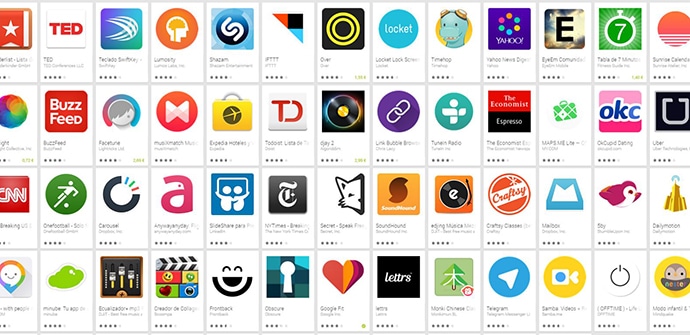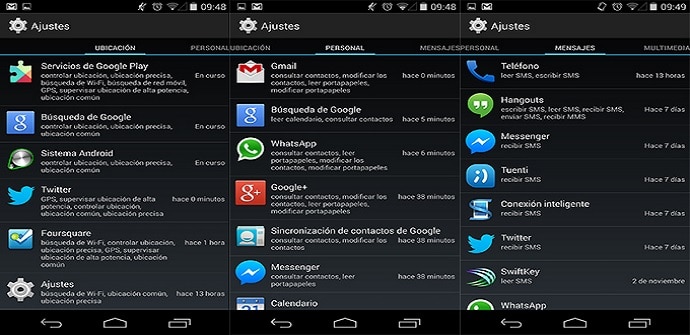
As we have mentioned on other occasions, Android is the most used operating system in the world. This means that it carries with it a very extensive catalog of applications directed by Google, and in which developers pour all their projects, from games of all genres, to tools aimed at improving productivity and making life easier for millions of users. users through their tablets and smartphones. This results in that the options we find on this platform are almost unlimited and most importantly: Each day that passes they expand offering new titles with which to reach even more consumers.
However, not everything has a place in the Mountain View software and therefore, some limits are set that, although at first they may seem to be aimed at the protection of users and their rights, in many other cases they raise criticism that for many, means making concessions to third parties. Although there are currently more than one million apps available for the more than XNUMX billion devices equipped with Android, there are some content that we will never see in our terminals due to the limits imposed by Google. Next we tell you what is banned and the causes of these prohibitions and we will try to see if it is something that has a positive impact on consumers or not.

1. Featured opinions
In an attempt to ensure the neutrality and the free choice of users when downloading applications, Google prohibits developers take the positive opinions about his creations and position them first. Other functions that the search engine uses to establish certain impartiality is the prohibition of repeating words in the descriptions in order to improve the positioning of that element on the web, offer too much information about the app or advertise other tools within an application.
2. Respect for privacy
Although in many cases, this is not fulfilled neither by the creators themselves, nor by Google when it comes to exposing the clauses in the conformation contracts when receiving a service from the search engine, the applications existing in the catalog are forced to have a clear privacy policy That it is at all times available to users so that they can know what they are exposed to and what is done with their data when downloading the different tools.

3. Copyright
Google Play is blunt with plagiarism. Those platforms that are copies of others made by prominent developers present in the catalog, are quickly removed. In this sense, those of Mountain View control all aspects that may be a reason for discard, from the imitation logo to its name. This seeks to defend the intellectual property of creators already consolidated and with an important presence.
4. Protection of groups
As we have mentioned on other occasions, Android and the applications available for it are the most used in the world not only by the number of users but also by the age ranges that handle them, a fact that is reflected in the existence of apps available to groups such as children of any age or elderly. To further guarantee your protection, prohibits fully publishing apps with pornographic or explicit content as well as those that imply the violation of the basic rights of other groups or minorities.

5. Limitation of payments in apps
Finally, we highlight this element present in most of the available tools. The integrated shopping or Premium versions They are something very common that in some cases, they can exceed 100 euros per item, an abusive amount that, however, is allowed. Google's way of "regulating" this element is due to the fact that the actual payments They should only be used for internal functions of the applications that require them and in no case for other tools or characteristics of the terminals.
As you have seen, in the most used application catalogs not everything is possible and there are some limits that cannot be exceeded. After learning more about the measures that Google uses to curb those contents that may pose a risk to users or their rights, do you think that these are really effective measures that leave out of the reach of millions of people what can harm them to When using your tablets or smartphones, or on the contrary, do you think that it is a simple facelift that hides a more important violation of consumer privileges and that is infringed by both application developers and the search engine itself? You have more related information such as, for example, what we expose ourselves to when granting permissions to the apps we download so that you can give your own opinion about the legitimacy of these measures and whether or not they are really useful and beneficial.